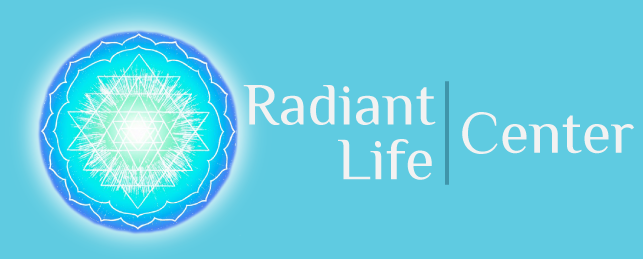Evolutionary Perspectives in Personal Growth
Counseling and Retreats for Couples


Four Principles of Radiant Loving
Long term relationship requires effort and commitment to create the fulfillment of our desire for heartfelt connection and companionship. This effort and commitment is the daily practice of relationship and to us, there is no better work. One of our favorite relational teachers, Terry Real, says “in order to have an extraordinary relationship, you have to behave extraordinarily.” We completely agree, and we know this does not happen without our daily tending and practice.
This practice is deep spiritual work, one in which we are called to do the most difficult challenge of being human – accepting others as they are and life we have with them as it is. Where else in life than in relationship do we have such a powerful mirror to ourselves? And with that mirror the opportunity to gaze within truthfully and take responsibility for our own life and experience?
We live and teach from the simple knowing that our partners can be our most important teachers. Everyday, within our own hearts and minds, we bow to each other out of respect for that and we encourage our couples to do the same. However, there is no glamor or star power in this real life teacher. No famous guru or teacher to aspire toward. Just a regular, faulted human individual that annoys us, enrages us, disappoints us and often won’t behave in the way we think they should. They may have different preferences, views about politics, kids, money and sex. Our partners might feel at times like an alien being. If only they would change, conform, and see that we are “right” then everything will be ok, right? Not going to happen!
Over the years of our own relationships evolution, our professional training, and our spiritual development we have synthesized the practice of relationship into 4 simple but potent principles. Whether in private sessions or in a retreat setting, these principles guide our work with couples. Without exception, we have found them easy to understand and powerful to practice.
Principle 1: Deepening Connection
Our first principle, "deepening connection" is foundational in loving relationship. As humans, we are deeply social beings, wired to desire connection within our family, within our social group, in friendships of all kinds, and eventually, as adolescents and adults within romantic relationships. We all long to be deeply seen and held by another and to do the same for them. It is part of who we are as humans.
In the beginning of relationship, this connection occurs very easily. There is no one else we want to be with, nowhere else we would rather be than with our beloved. We sit together, gaze into each other’s eyes, call each other frequently when we are apart, make love often and think about the other ALL the time. But then what happens? It is an all too familiar story. These two people who once could not get enough of each other are now sitting across the table with little or nothing to say, or maybe a lot to say which feels too threatening to express. Unresolved conflicts, old pain and disappointments, busy schedules, the stresses of work and family, and the demands of our modern existence can all come to the forefront and obscure the connection that once flowed so easily. Over time all of these factors can build resentment and drive us away from one another. When that happens, connection dramatically decreases.
Many types of conflicts bring people into therapy, but what usually lies below the presenting issue is a connection deficit. Underneath the problems, each person often longs to feel connection again - to re-experience what they first knew in their early days. What we know is that when connection decreases, conflict increases. It's as simple as that. The problem is not the issues at hand, it is the lack of connection and the distress that that brings. If we feel a satisfying on-going connection with our partner, daily irritations decrease or are not so important, and there is more positive feeling between two the individuals in partnership.
In our counseling, we seek to deepen the connection between the couple. This is accomplished through helping to clear out any resentments that lie in the way of connection and by helping couples to find their way back to one another through a practice of connection. We invite couples to make connection in the relationship a priority again. That may involve everything from committing to increasing simple contact through the day, more time spent alone together, more text messages, more hugs, more appreciative communication, more sex. In essence, increasing the companionship we all desire. Every couple is different in what they need in terms of connection, but connection is always a main key to improving relationship dynamics.
Principle 2 - Appreciation
Gay and Kathlyn Hendricks, authors of “Conscious Loving” and “Lasting Love” consider appreciation one of the major components of lasting love. Author of New Rules of Marriage and therapist Terry Real calls it “cherishing” and feels that the practice of this trumps all his other relationship building strategies. John Gottman, author of The 7 Principles of Making Marriage Work notes in his research that in a harmonious marriage, positive interactions outweigh negative by 4 to 1. Any successful teacher or employer knows that appreciation is what motivates their students or employees.Parents know this too – criticize your child and you will get nowhere, appreciate them and you might have some hope of a positive behavior change.The same is true with our partners.
We can not say enough about the practice of appreciation in relationship. It is an often overlooked power house of good vibes and positive relationship building. And for most of us, we did not learn this important art from our family of origin. Many of us have had very few models of the expression of appreciation in relationship. As a result, appreciation is a practice that must be ... well, practiced. When we appreciate the other and keep our focus there (rather than on criticism) we can create very positive change in ourselves, in the other and in the relationship. We are fond of saying that the expression of appreciation feels good both in the heart of the giver and in the receiver.
We are always looking for ways to encourage couples to find and express their appreciation. We find those opportunities in session, and we encourage large doses of it at home. It is always amazing to witness the beautiful energy that flows between two people when they are in appreciation.
Principle 3 - Taking 100% Responsibility/Withdrawing Blame
When I (Trinity) was a child my father, Bill Harris, would intervene on sibling arguments with a very consistent attitude "It takes two to tango". In his wisdom he saw that we each had our part in the conflict and he dealt with us accordingly. Sometimes when a couple enters therapy one or both are sure that their partner is the designated problem and if we would fix them, their problems would be solved. But we ascribe to the wisdom of Bill Harris. We say that each person is 100% responsible for their experience of relationship and therefore each is 100% responsible to facilitate conflict resolution.
Though you are not responsible for what your partner does, how they behave or act, you are responsible for what you see, how you interpret what you see, what emotions arise in you, and how you behave in response. Though we often might want to believe differently, no one can “make” us feel anything. Our partner’s behavior might trigger us to feel something, or to react or behave in a particular way, but ultimately we are in charge of the response to that reaction or trigger. Said another way, only oneself can change our reactive response.This is what it means to take 100% responsibility. This is the hardest and best work we can do in relationship.
When we take 100% responsibility we can begin to withdraw blame from the other. This is a very positive move, as the blame game never works. In taking 100% responsibility we have the power to truly change. This is accomplished through identifying the triggers (perceptions) that cause uncomfortable emotion in us, understanding our own interpretation of the event which causes the emotion, allowing/releasing that emotion, and practicing a more skillful response. This helps us to incorporate new beliefs (interpretations) of what triggers us and to practice different behaviors in response, creating more connection and less repeating conflict.
The principle of 100% responsibility is often the most difficult of the four principles and offers some of the biggest challenge to a couple, both in session and at home. However, it is the single most powerful practice to create fulfilling relationship.
Principle 4 - Accepting the Other as They Are
This is a simple but also challenging principle. We may begin our relationships with acceptance of our partners as they are because in the beginning we feel that who they are is pretty cool. We often feel that they are the best person to love us that we could imagine. As time goes on however our patterns of ego begin to rear their ugly heads. Suddenly that cute nerdy shy guy that you thought was so unique and wonderful has become the husband that you feel embarrassed by because he goes to social gatherings with you and has trouble feeling relaxed. Or that wonderfully flirtatious vibrant woman you fell in love with has become someone who's attention to others brings up feelings of jealousy. We all fall in love with our partners as they are. However, as the relationship matures, the same qualities we fell in love with can become difficult, irritating, even infuriating.
Accepting your partner as they are is a deep practice. It is also a practice that reaps many rewards. In a very real way, you stop wishing that the partner was different, and accept them as they are. When you do this, your heart is more open, and the partner moves toward you with greater ease. Remember when all you wanted to do was to be together? This last principle also requires us to live all the first 3 principles every day.
We help couples to remember who they fell in love with and to cultivate this great acceptance. This does not mean that we have no limits, boundaries, or “right” to express our desires in relationship. This is the 100% responsibility part. It means that we fundamentally feel acceptance of the other in their basic self, and that their primary style of being is not wrong, just different from ours. We have found that this principle is powerful in deepening warmth and love between two people. Everyone wants to feel accepted for who they are and when we feel that acceptance from our partners there is much greater harmony and love.
